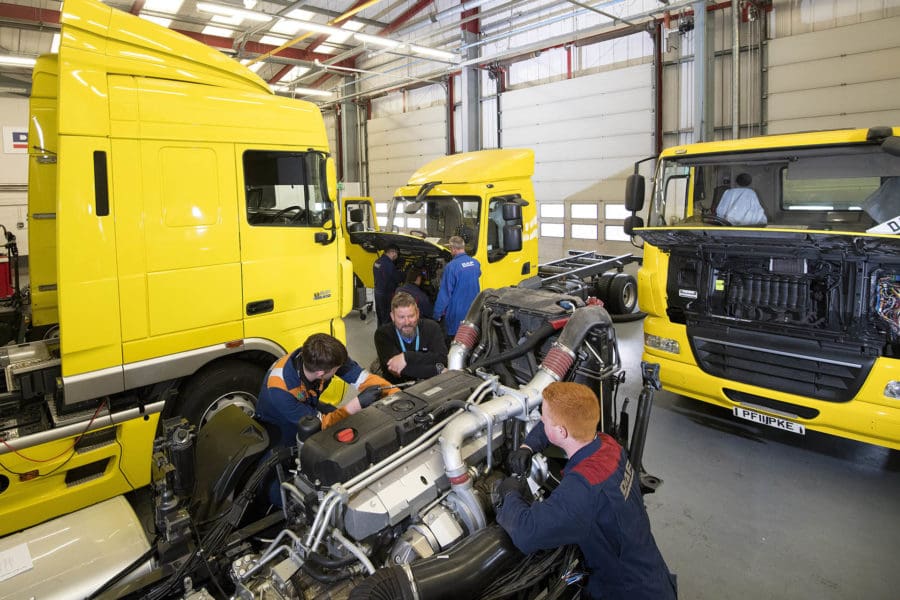Course overview
Heavy Vehicle Service and Maintenance Level 3 Apprenticeship City of Bristol CollegeAs a heavy vehicle apprentice, you will be immersed in the fast-paced and thriving world of the automotive industry. You will undertake a range of duties including maintaining and repairing heavy vehicles over 3.5 tonnes, as well as diagnosing faults and finding appropriate solutions.
In addition, you will carry out useful tasks such as routine servicing and inspection procedures. The tasks you will face will be ever-changing, with new technologies and diagnostic techniques constantly being introduced.
You need to find your own employer as part of your application for an apprenticeship; you can search apprenticeship vacancies on gov.uk.

